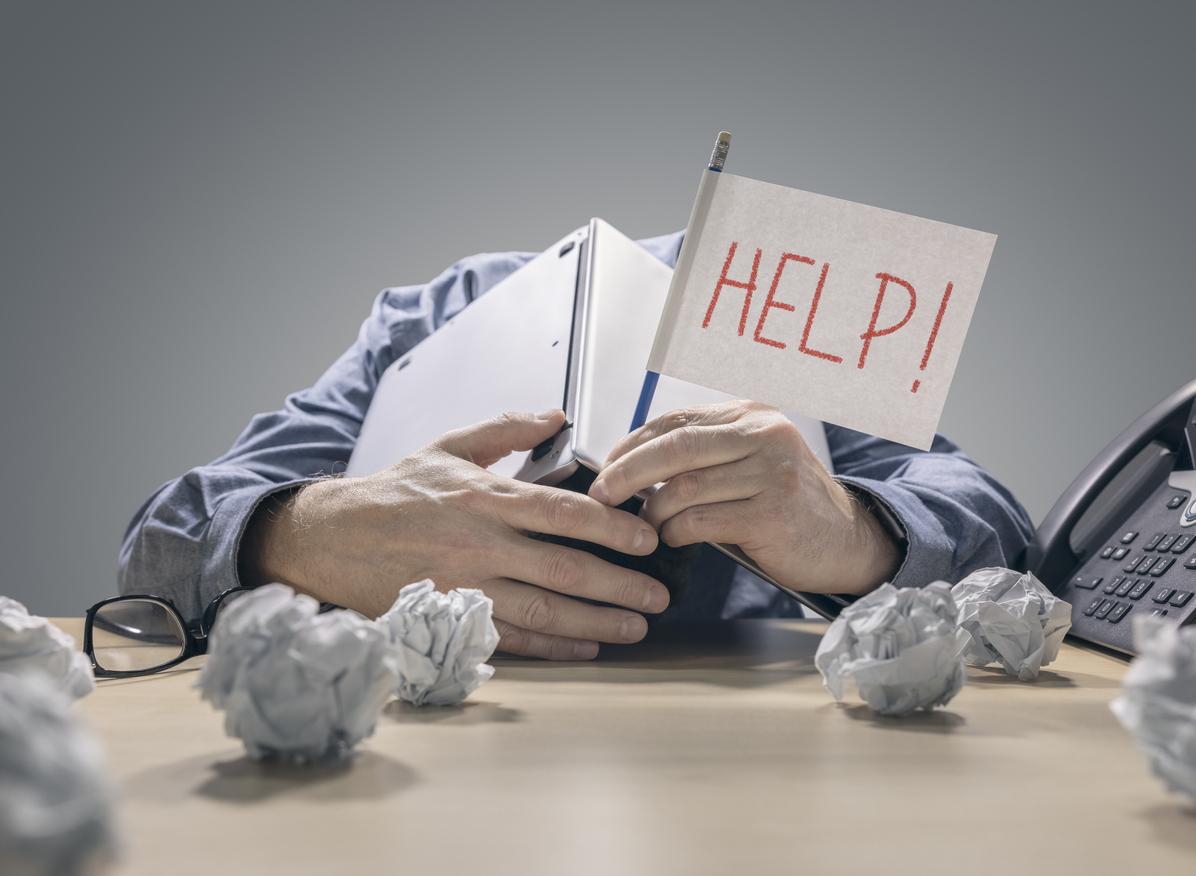
Recognize burnout complaints in time
Due to the corona crisis, we have been working completely from home for months. Where in the beginning that was especially nice, without traffic jams and morning stress, many people now struggle with burnout complaints. How do you recognize such a work-from-home burnout? And what can you do about it?
Some of the employees suffered a burnout in the past year as a result of working from home. That is not surprising, because it is now even more difficult to separate your work from your private life. For example, your work is now literally at the kitchen table. And with the addition of homeschooling children, the pressure has become even greater.
Burnout is a form of exhaustion where you feel exhausted. If you have a burnout, you are so tired that you no longer function properly at work or at home – or in this case both. You are less motivated, you feel less involved in your work and you find it increasingly difficult to do your work independently. This leads to both mental and physical complaints.
Complaints
You can recognize a burnout by the following stress symptoms:
- An exhausted feeling
- worry
- A haunted feeling
- Dizziness
- hyperventilation
- Insomnia
- Headache
- palpitations
- High bloodpressure
- shortness of breath
- Concentration and memory problems
- Anxiety Complaints
- Insecurity
- indecision
- Irritability
- Stomach and intestinal complaints
- Chestpain
- Crying easily
Do you have three (or more) of the above complaints? Then it is important to contact your doctor, especially if you also suffer from physical complaints. Perhaps there is more to it. If no physical cause has been found, your GP can also refer you to a psychologist, for example. They can help you further.
With sufficient rest and the right guidance, your complaints will disappear. Recovery usually takes about three months to six months, but it can also be faster or slower. That differs from person to person.
Moving under stress
If you only (still) suffer from stress, exercise is a very good idea. This can help give you more peace of mind, let go of your work and reduce stress. It also keeps your body healthy and your joints flexible. It doesn’t matter which sport you choose. As long as the happy hormones dopamine and serotonin are released, because they help improve your mood and sleep. According to Lee Chambers, environmental psychologist and wellness consultant, you get the most of these benefits with short breaks from exercise every day. “Finding an exercise you enjoy is vital as it will help you stay consistent by making sure you take the breaks and stay active on a daily basis.”
from a study van Reebok – based on search results – shows that in our country yoga, cycling and walking are the most popular sports in the fight against work stress. These sports are ideal as a pick-me-up in the afternoon or to end your working day.
Sources):

















